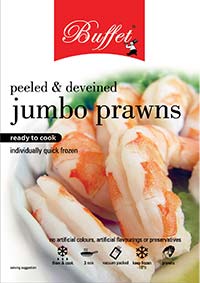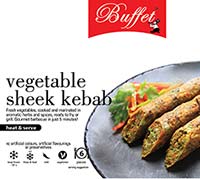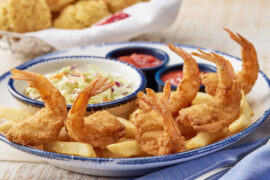The growth of India’s frozen food industry is increasingly apparent at home as well as abroad. Long a powerhouse in the export of fish and seafood, the nation’s domestic market for value-added frozen products is reportedly growing annually at a double-digit clip and will be worth more than Rs 930 crore by next year – up from Rs 365 crore in 2012.
This has prompted Cochin-headquartered Amalgam Frozen Foods to develop a strategy for opening a chain of stores across the sub-continent dedicated exclusively to the sale of frozen fare ranging from seafood and meats to vegetables, parathas, ice cream and other convenience items.
 The shops, which will first come on line in Kerala, will be financed with an initial investment of Rs 25 crore. The plan is to first establish a base in southern India before expanding elsewhere in the country.
The shops, which will first come on line in Kerala, will be financed with an initial investment of Rs 25 crore. The plan is to first establish a base in southern India before expanding elsewhere in the country.
Abraham J. Tharakan, chairman of the Amalgam Group, is well aware of the distribution challenges that will be faced to build such a retail network nationwide. He is also confident that the hurdles will be overcome.
“At present the cold chain breaks in the case of most of the frozen foods in the country during delivery from the factory to the consumer’s refrigerator due to temperature fluctuation resulting in a dip in product quality,” he conceded.
 With this in mind, Amalgam aims to set a gold standard example in cold chain logistics and see that it is adhered to from point of manufacture to point of sale. As much the shops’ stock keeping units (SKUs) will consist of the company’s own Buffet brand products, it will be in a position to guarantee temperature control at -20°C during storage, transport and in-store merchandising.
With this in mind, Amalgam aims to set a gold standard example in cold chain logistics and see that it is adhered to from point of manufacture to point of sale. As much the shops’ stock keeping units (SKUs) will consist of the company’s own Buffet brand products, it will be in a position to guarantee temperature control at -20°C during storage, transport and in-store merchandising.
The extensive Buffet line runs the gamut from ready-to-cook jumbo prawns and squid rings to tandori fish fillets, achari paneer kathi rolls, chicken calzone, vegetable sheek kabab, pork streaky bacon, rice chapatti and paratha of all sorts.
Domestic Surimi Sales Boom
Meanwhile, frozen surimi manufacturing specialist Gadre Marine Export aims to double sales of Rs 550 crore this year, most of which will be generated in overseas markets. But the home market is strengthening as well.
“We are having 50% yearly growth in the Indian retail industry,” CEO Arjun Gadre told the PTI news agency. “We had sales of 250 tons last fiscal year, and are targeting sales of 500 tons this year. We exported 34,000 tons of fish and produced about 14,000 tons of value added products last year.”
The Ratnagiri, Maharashtra-headquartered company’s product line, which includes surimi analog crab sticks, shrimp samosa and lobster bytes, is currently available in more than 500 outlets in 20 cities across India.
“Fish has been eaten mainly in the coastal regions in our country. But now seafood is becoming very popular across all regions, even in the interior. There is a growing demand for good quality frozen seafood,” said Gadre.





